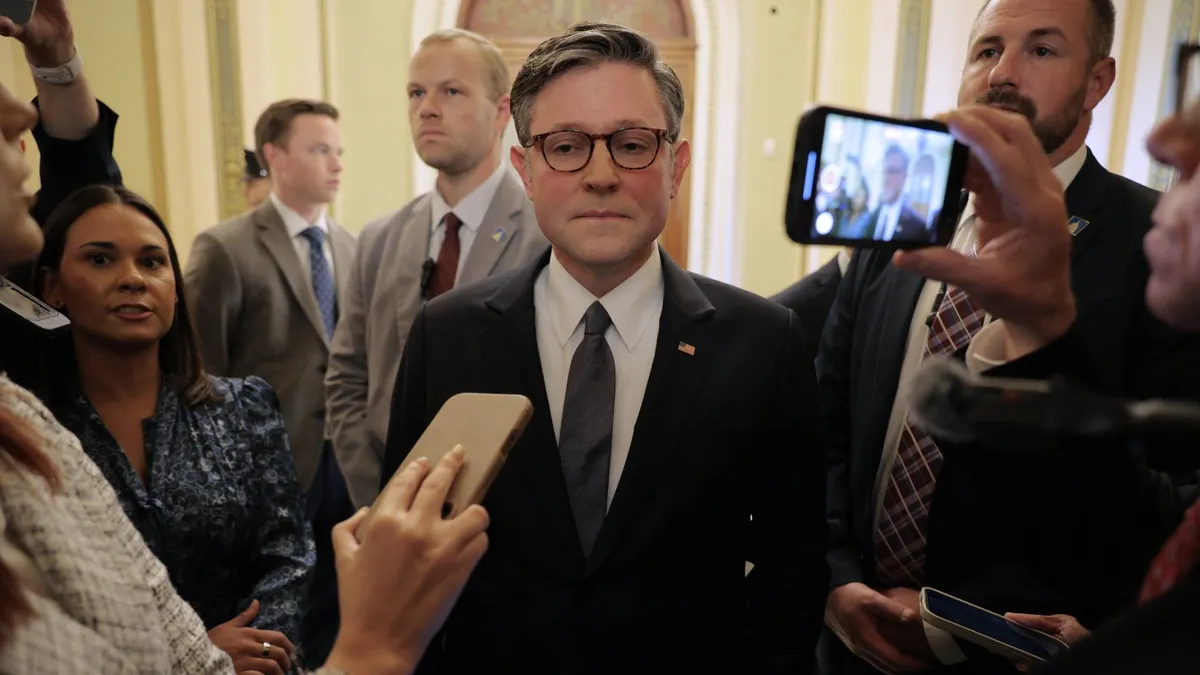
As the threat of a government shutdown looms just two weeks away, House Republicans are taking decisive action by unveiling new legislation aimed at funding the government through November 21. This proposed stopgap bill not only extends current funding levels for federal agencies for an additional seven weeks but also allocates essential resources to enhance security measures for government officials. However, uncertainty remains regarding whether the measure will garner sufficient votes for passage, especially as Democrats are calling for further negotiations.
The temporary funding legislation introduced by House Republicans includes an additional $58 million designated to bolster security for the federal judiciary and executive branch officials, following a formal request from the White House. Furthermore, Republican leaders have proposed an extra $30 million to strengthen security resources available to lawmakers themselves. House Speaker Mike Johnson, R-La., emphasized that the bill aims to provide more time for negotiating long-term spending solutions. "We need responsible options to keep the government open while all this work continues, and Republicans are committed to making that happen," Johnson stated during a press conference.
In recent days, former President Donald Trump has taken to social media to encourage Republicans in both the House and Senate to rally around a "clean continuing resolution." He has accused Democrats of pushing for a government shutdown, asserting that unity among Republicans is crucial in the face of what he terms the "Radical Left Democrat demands." On his platform, Truth Social, Trump urged his party members to "vote 'YES!'" in support of the proposed legislation.
In response to the Republican proposal, Democrats are advocating for bipartisan discussions regarding the short-term funding bill. They emphasize that any spending extension should address critical issues, including the expiring health care subsidies set to lapse at the year's end. Additionally, some Democrats are pushing for a rollback of certain Medicaid program changes introduced in the GOP tax bill enacted in July. However, Speaker Johnson has firmly stated that there is "zero chance" Republicans will reverse any Medicaid provisions at this time, framing discussions around Affordable Care Act subsidies as a separate issue slated for December, not September.
Senate Minority Leader Chuck Schumer, D-N.Y., has warned that while the GOP may manage to pass the funding bill with Republican votes in the House, they will still need a total of 60 votes in the Senate to move forward. Schumer has reiterated the importance of Democratic involvement and expressed that if Trump insists on no negotiations, then the responsibility of a potential shutdown falls squarely on his shoulders. "If Donald Trump says no negotiations at all, then it's Donald Trump's shutdown," Schumer declared on the Senate floor.
The top Democrats on the House and Senate Appropriations Committees, Rep. Rosa DeLauro, D-Conn., and Sen. Patty Murray, D-Wash., have issued a joint statement indicating their ongoing collaboration with GOP counterparts to develop a bipartisan plan. They have called on Speaker Johnson and Senate Majority Leader John Thune, R-S.D., to actively participate in these discussions to avert a shutdown crisis. DeLauro and Murray criticized the House Republican leadership for their reluctance to work with Democrats, stating, "House Republican Leadership has decided they would rather take us to the brink of a shutdown instead of working with Democrats on a bipartisan continuing resolution."
During a press conference, Thune expressed optimism regarding bipartisan support for a clean government funding extension that would enable Congress to proceed with individual spending bills this fall. While acknowledging Schumer's right to oppose the bill, Thune hopes there will be enough Democratic Senators willing to support the proposal to achieve the necessary votes to keep the government operational. With a narrow majority, House GOP leaders can only afford to lose two votes, and representatives Tom Massie, R-Ky., and Warren Davidson, R-Ohio, have already signaled their opposition to the proposed GOP legislation.
As the clock ticks down to the potential shutdown, the future of government funding hangs in the balance, emphasizing the critical need for bipartisan cooperation and effective negotiation.